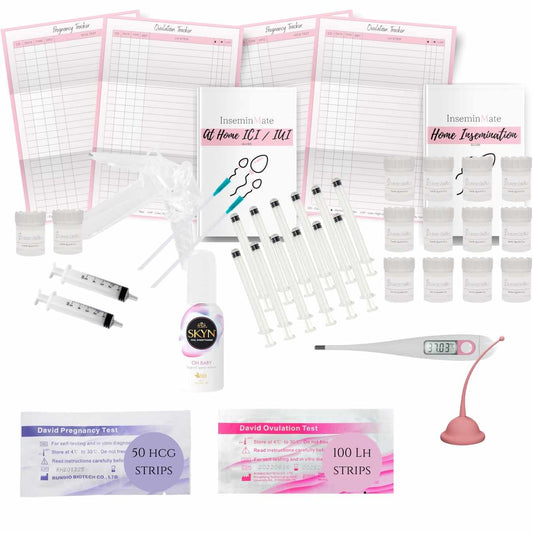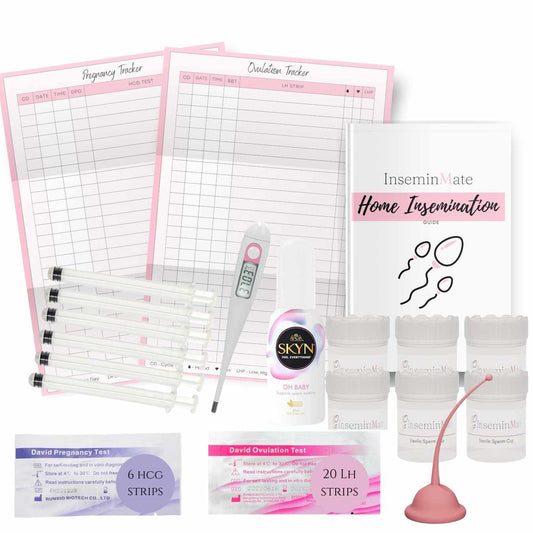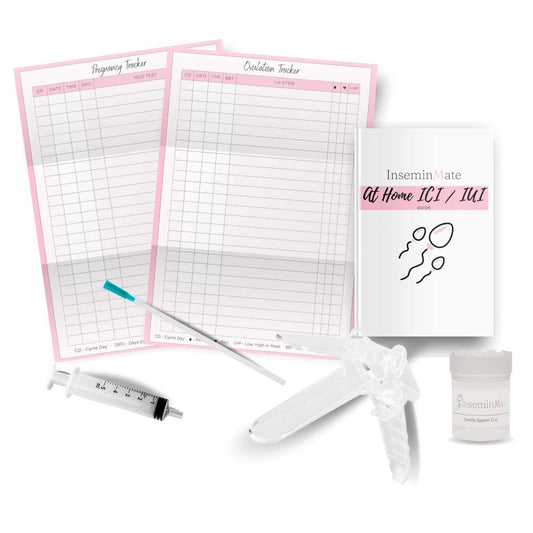Embarking on the journey of building a family through home insemination is an exciting and hopeful step. As you eagerly anticipate the possibility of a new life, it's essential to be mindful of certain lifestyle choices that can impact the success of the process. In this blog post, we'll explore what to avoid after home insemination to enhance your chances of a healthy and successful pregnancy.
- Say No to Smoking:
Smoking and pregnancy are a harmful combination. Not only does smoking decrease fertility, but it can also pose serious risks to the developing fetus. After home insemination, it's crucial to steer clear of smoking altogether. The toxins in cigarette smoke can interfere with the delicate process of embryo implantation and increase the likelihood of complications.
- Alcohol Awareness:
While the joy of the two-week wait period after insemination sets in, it's wise to abstain from alcohol. Consuming alcohol during this crucial time can negatively impact fertility and elevate the risk of miscarriage. Give your body the best chance by opting for non-alcoholic alternatives and embracing a healthy mindset during this waiting period.
- Exercise in Moderation:
Exercise is undoubtedly beneficial for overall health and fertility, but it's essential to strike a balance. Intense workouts during the two-week wait period could potentially disrupt implantation. Opt for moderate exercise such as walking, swimming, or gentle yoga to maintain a healthy lifestyle without compromising your fertility journey.
- Heat-Free Zone:
Excessive heat is an enemy of fertility. Hot tubs and saunas might sound tempting, but it's best to avoid them during the two-week wait after home insemination. Elevated body temperature can hinder the implantation process, so opt for cooler alternatives to protect your reproductive health.
- Caffeine Caution:
Your morning cup of coffee may need a second thought during this crucial period. High levels of caffeine intake have been linked to an increased risk of miscarriage. Consider reducing your caffeine intake or switching to decaffeinated options to create a more favorable environment for a developing embryo.
- Stress Less, Relax More:
Stress can be a silent saboteur of fertility. Incorporate stress-reducing activities into your routine, such as meditation, deep breathing exercises, or gentle walks in nature. A calm and relaxed state of mind can positively impact your chances of conception.
- Watch Your Medications:
Before reaching for any over-the-counter medications, consult with your healthcare professional. Some medications may interfere with fertility or pose risks during pregnancy. Ensure that any medication you take is approved for use during the conception phase and early pregnancy.
In the delicate dance of home insemination, every choice you make plays a role in the success of your journey towards parenthood. By avoiding these potential pitfalls, you're nurturing the nest and creating a supportive environment for the early stages of pregnancy. Remember, every individual's journey is unique, so consult with your healthcare provider for personalized guidance tailored to your specific needs. Here's to a healthy and thriving pregnancy!




